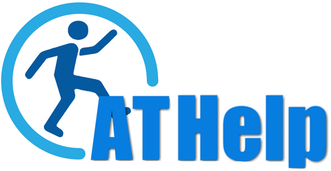Augmentative and Alternative Communication (AAC)
• Compensation, temporarily or permanently, for severe expressive communication disorders
• Can be used to supplement existing speech
• May replace speech that is not functional
• Employed to develop child's developing speech/language skills
Complex Communication Needs (CCN)
Beukelman and Mirenda (2013) estimated that approximately 1.3% of people (or roughly 4 million Americans) are unable to reliably communicate using natural speech to accomplish daily communication needs.
Defintions:
Speech: the production of sounds for the purpose of language needs
Language: the words/symbols we use to convey meaning within a context
Communication: the interactive process through which thoughts and information are conveyed and received
Receptive & Expressive Language
We can have trouble with speech, language, or both.
Having trouble understanding what others say is a receptive language disorder.
Having problems sharing our thoughts, ideas, and feelings is an expressive language disorder.
It is possible to have both a receptive and an expressive language problem.
Strong Myths on AAC
AAC should be used only after giving up on natural speech
• Impossible to predict the future development of speech
• Being not able to communicate, greater risk for
cognitive, social, emotional and behavioral problems
AAC reduces motivation to work on speech
• Use of AAC fosters more natural speech
A young child is not ready for AAC
• There are no cogntive or developmental requirements for AAC
A child does not require AAC until school-age
• Communication comes before all other developmental needs
• Education cannot occur without effective communication
Priorities for AAC Users
• Motivating vocabulary
• Effective symbol selection
• Vocabulary to use across all environments
• Providing opportunities to communicate
• Partners who know what can facilitate more use
• Teachers who plan for exchanges
• Device should have richness of what I can say
• Ability and desire to keep Convo going
• Ability to quickly navigate pages
• Know what to say and when
• Patient and respectful partners in Convo
• Multi-Modal skills: texting, email, chat, tweet…
